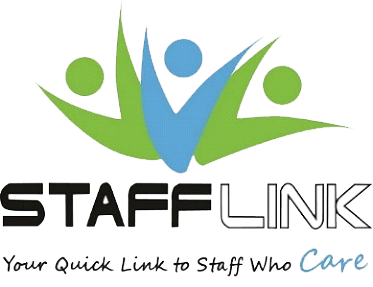Eleven (11) New Year’s Resolutions for Caregivers
Currently, nearly 10,000 baby boomers a day turn 65 years old. This is going to continue for the next 30 years. The United States population that is over 65 years of age will grow from just under 50 million to nearly 90-100 million in the next 30-40 years! These numbers will continue to have a significant impact on family caregiving. Here are eleven (11) New Year’s resolutions for caregivers:
- Commit to assess your caregiving needs. Have your caregiving needs changed in any manner? Is your mother falling more? Is your father exhibiting increased memory issues? What is the reason for this change? Do you need to make an appointment with her doctor to discuss the change? Does he need to see a specialist? Do you need to make home modifications to make the home safer? Do you need to consider a move to a senior community?
- Commit to read about your loved one’s specific disease and aging issues. Educate yourself about the illness and disease affecting your loved one. You will feel more in control. You will have more confidence in your ability to fulfill your caregiving responsibilities. You will have more confidence in speaking with medical and health care professionals about loved ones needs and treatment. You will be a better advocate for them.
- Commit to plan in advance. Time management is important to anyone who has additional responsibilities as a caregiver. Planning will alleviate some stress, not all stress. Look at your daily and weekly schedule-is there a regular time that you can schedule necessary caregiving duties? Put those duties on your daily and weekly calendar. Are there doctor appointments and procedures that are coming up down the road? Do you need to take time off for several hours or a day or two? Do you need to ask someone else to step in to assist you on those days?
- Commit to evaluate if your health care providers are meeting your current needs. Do you have a new diagnosis? Should you consider seeing specialist? Are your waits in your primary physicians waiting room unreasonable?
- Commit to ask for assistance from family and friends. You have not, because you ask not. Don’t take on the role as the sole family caregiver when you have other siblings. Being the sole caregiver will become very lonely and frustrating. Ask for and even demand assistance. Call a family meeting and discuss what is needed and agree on what caregiving responsibilities will be taken on by each family member.
- Commit to hire help when and where needed. Delegate tasks out to hired professionals that can be delegated. Can you have someone else cut the grass? Can you hire someone do the fall yard clean-up? Can you hire a housecleaning service to clean once or twice a month? Can you hire a caregiver to come in twice a week to help provide hands-on care? Can you hire someone to take mom to and from her outpatient physical therapy appointments?
- Commit to use services to make your life easier and to save time. The pandemic has changed the way many of us use services. I have not gone inside any store for over a year and half to purchase necessary household items. This has saved me gas and valuable time. I have taken full advantage of purchasing everything from toilet tissue to detergent on-line and having them delivered to my home for free. If you prefer to order on-line and pick up your items up curbside, that also saves you the time that you would have spent walking the aisles and putting the items in your cart. You can purchase grocery items remotely and have them delivered to your home using a number of moderately priced and expanding delivery services. I definitely hope that many of these convenient options will continue to be offered after the pandemic ends.
- Commit to research current and new resources. New year, new resources? Check with various non-profit organizations about what resources are available for patients with specific diseases. Call the American Cancer Society, the Alzheimer’s Association, or the Parkinson Foundation and other non-profits to gather information about resources. Is your father a veteran or mother a widow of a veteran? Have you taken advantage of the veteran benefits that they may be eligible to participate? Has there been a change in monthly income? Is your family member eligible for Medicaid at this time?
- Commit to participate in a caregiver support group. Since the beginning of the pandemic, many of these have been offered on-line. Support groups offer validation for what you are experiencing as a caregiver and are a great source of information that may be helpful, especially resources that you may know nothing about.
- Commit to forgive yourself for not being perfect. Caregiver guilt is a real issue. You are not perfect. You are doing the best you can. Accept your strengths and weaknesses. Participating in a caregiver support group will help in this area.
- Finally, commit to practice self-care. Take care of your physical, emotional, spiritual and financial health needs on a daily, weekly or monthly basis. Neglecting these needs will lead to negative outcomes for you. Schedule time on your calendar for physical, emotional, spiritual and financial self- care activities just like we have suggested you schedule your caregiving responsibilities.
Happy New Year!
Latest posts by Gretchen Curry, MSPH (see all)
- StaffLink Celebrates 38 Years in Business! - March 30, 2025
- What Is the Hourly Cost for Home Health in 2025? - March 12, 2025
- Seeking Retirees and Mature Persons to Provide In-home Care to Seniors - February 26, 2025

